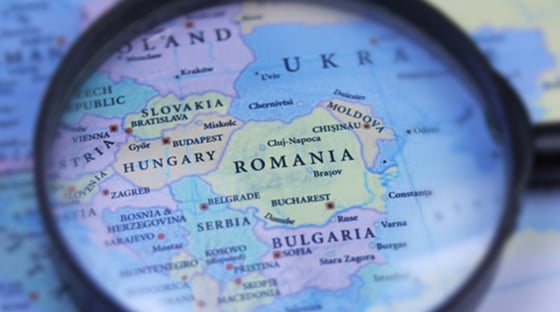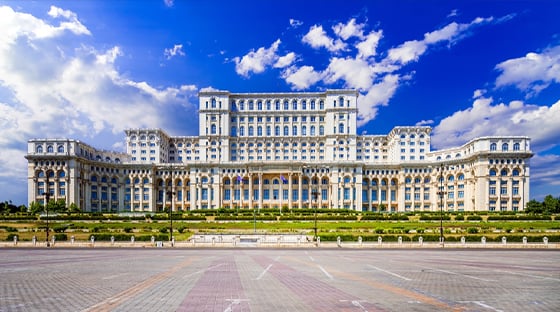-
Services
-
Software Project Delivery
-
Services
-
Solutions
-
Technologies
-
-
Network
-
Discover
-
Regions
-
Industries
-
Must-Read Guide
-
2026 Global Software Outsourcing Rates and Trends GuideDiscover why rates are just one aspect of the Accelerance Global Software Outsourcing Rates & Trends Guide, which offers valuable insights into the software development landscape.
-
-
-
Resources
-
Our Resources
-
Newest White paper
-
Aviation Ecosystem Modernization: A Holistic Approach for Meaningful TransformationModernize aviation by integrating people, processes, technology, and data
-
-
New eBook
-
 The True Cost of Software DevelopmentHidden costs can wreck your budget. Our new eBook breaks down the true cost of outsourcing—get your copy to stay ahead.
The True Cost of Software DevelopmentHidden costs can wreck your budget. Our new eBook breaks down the true cost of outsourcing—get your copy to stay ahead.
-
-
Featured White paper
-
Flow & Process OptimizationIn this white paper, you'll learn to streamline workflows, improve change management, and accelerate results.
-
-
-
About
-
About Accelerance
-
Our History
-
Accelerance: Our HistoryThere's great talent everywhere and great teams everywhere, which is the basis of the Accelerance model.
-
-
Software Without Borders
-
New Episode Every Week!Tune into our podcast Software Without Borders, the essential listen for technology leaders and business owners in the software sector who crave insights from the industry’s top minds.
-
-
Andy's Book
-
Synergea: A Blueprint for Building Effective, Globally Distributed Teams in the New Era of Software DevelopmentPeople are first and locations are secondary when it comes to software development success.
-
-
- Client Reviews

Software Outsourcing in Central & Eastern Europe
A sophisticated developer workforce awaits.

Overview
Ready to outsource to Europe?
Software Outsourcing in Central and Eastern Europe
If you are looking for deep pools of experienced software developer talent, an easy cultural fit with North America, and competitive rates, we’ve got just the place for you - Eastern & Central Europe.
We’ll help you find skilled senior engineers for up to 30% less than those available on the US domestic market, matching you with development partners plugged into the region’s thriving tech scene.
The war in Ukraine and sanctions against Russia and Belarus have disrupted the region’s software industry. But within Ukraine’s borders, particularly in the west of the country, away from the frontline fighting, our partners still operate with the professionalism that has made Ukraine one of the world’s most in-demand outsourcing destinations.
As the pain of the ongoing tech talent shortage continues to bite, you have a region comprising 16 individual outsourcing destinations to explore, from Croatia and Poland to Romania and Bulgaria.
Among them are 10 countries that consulting firm McKinsey has dubbed the “Digital Challengers,” where the digital economy has outpaced expectations.
The Numbers Don't Lie
Outsourcing to Central and Eastern Europe through Accelerance has proven highly successful, with a widespread presence and access to thousands of skilled developers in the region.
100
%
Customer Satisfaction
100% of customers love working with our European partners.
19
Certified Partners
Accelerance has 19 European Certified Partners in our network.
23
Country Locations
Accelerance has Certified Partners in 23 countries across Europe.
5
k+
Developers
Accelerance Partners have over 5,000 developers across the European Region.
Key Benefits of Outsourcing to Europe
Western companies increasingly recognize the benefits of adding skilled software development teams in Eastern and Central Europe. Of course, there are cost savings. But so much more, too. Europe has a highly sophisticated workforce. Our partners have knowledge and practical experience working with Western businesses. Many of their key employees have worked for top US firms, and a majority of their clients are Western firms.
You'll get a good fit with any Accelerance partner firm.
-
Competitive Rates
Competitive Rates
Get StartedWhether your staffing needs involve senior developers, project managers, business analysts, or QA testers, you are positioned to gain significant cost advantages. Our skilled professionals offer expertise at hourly rates that are remarkably competitive, presenting a cost-saving opportunity of up to 30% when compared to the rates of equivalent skilled workers in North America. This financial advantage extends across a spectrum of roles, allowing you to build a dedicated team without compromising on quality, ensuring that your projects receive the expertise they deserve while optimizing your budget effectively.

-
Skilled Developers
Skilled Developers
Hire Your Skilled Developers TodayThe sustained commitment of the region to education, with a specific emphasis on STEM (Science, Technology, Engineering, and Mathematics) subjects, has yielded remarkable results in the form of a substantial and diverse tech workforce. This workforce encompasses individuals with expertise in various specialized areas such as computer science, engineering, artificial intelligence, cybersecurity, and cryptography. The emphasis on STEM education has not only cultivated a broad knowledge base but has also nurtured a culture of continuous learning and innovation. As a result, the region boasts a talent pool that is not only well-versed in foundational technological principles but is also adept at navigating cutting-edge advancements, positioning itself as a valuable resource for businesses seeking specialized skills and forward-thinking solutions.

-
English Proficiency
English Proficiency
Get Started
In the vast majority of countries spanning Eastern and Central Europe, English serves as the predominant language of business. Within this linguistic landscape, our esteemed partners consistently engage English-speaking developers, fostering a collaborative environment that aligns seamlessly with the preferences and requirements of North American clients. This linguistic harmony not only ensures effective communication but also underscores the commitment of our partners to provide a conducive and accessible platform for international collaboration. The proficiency of developers in English further enhances the engagement quality, facilitating clear and efficient exchanges that contribute to the success of projects undertaken with North American clients.
-
Political and Economic Stability
Political and Economic Stability
Chat with UsThe geopolitical hotspot of Ukraine aside, Central and Eastern European nations feature stable governments, steadily growing economies, and increasing integration with the European Union.
In Eastern and Central Europe, specialized talent is hard to obtain and retain
in the US. What’s crucial is identifying the right partner in the right place with the experience and expertise you need – and that’s where Accelerance can help.
-
Strong IT Infrastructure
Strong IT Infrastructure
Let's TalkNumerous countries within the region have demonstrated a strategic commitment to cultivating robust IT ecosystems by making substantial investments in cutting-edge infrastructure. This includes not only high-speed internet but also the establishment of state-of-the-art data centers and dedicated technology parks. These purposeful investments signify a forward-thinking approach, creating an environment where software development projects can thrive seamlessly. The emphasis on comprehensive IT infrastructure not only ensures connectivity but also provides a foundation for innovation and technological advancements. By fostering an ecosystem that prioritizes accessibility and efficiency, these countries position themselves as ideal destinations for software development initiatives, offering an infrastructure that catalyzes the smooth and effective operation of projects at every stage of development.

-
Data Security and Compliance
Data Security and Compliance
Talk To UsThe region has earned a commendable reputation for its stringent data protection and privacy regulations, exemplified by the implementation of comprehensive frameworks like the General Data Protection Regulation (GDPR) within the European Union. This commitment to data security becomes particularly appealing for companies entrusted with handling sensitive customer data, as it ensures a structured and legally compliant approach. The emphasis on safeguarding data aligns seamlessly with the requirements of industries that must adhere to stringent standards such as HIIPA (Health Insurance Portability and Accountability Act) or PCI (Payment Card Industry) compliance. By adopting and enforcing robust data protection laws, the region not only ensures the security and privacy of sensitive information but also positions itself as a reliable and responsible destination for businesses seeking adherence to strict data protection regulations throughout their operations.

-
Quality of Work
Quality of Work
Chat NowDevelopers hailing from Central and Eastern Europe have garnered widespread recognition for their unwavering commitment to delivering exceptional quality in software development. This commitment is underpinned by a notable work ethic characterized by diligence and a meticulous attention to detail. Their dedication extends beyond mere functionality, encompassing a holistic approach that prioritizes not just meeting but exceeding client expectations. This emphasis on quality permeates every phase of the development lifecycle, from conceptualization to deployment, ensuring that the end product not only aligns with specifications but also demonstrates a level of craftsmanship that sets it apart. Moreover, their reliability shines through in consistently meeting project deadlines, fostering a reputation for on-time and high-quality deliveries. This combination of strong work ethic, attention to detail, and a commitment to excellence establishes Central and Eastern European developers as valuable partners for businesses seeking software solutions that exemplify superior quality and reliability.

-
Time to Market
Time to Market
Reach Out TodayThe advantageous combination of relatively close time zones and geographical proximity in the region fosters a conducive environment for businesses to enhance coordination and project management efficiency. This proximity allows for seamless real-time collaboration, facilitating instant communication and rapid decision-making processes. The interconnectedness created by geographical closeness not only expedites communication but also promotes a shared understanding of project objectives and timelines. This collaborative synergy, fueled by both temporal and spatial factors, significantly contributes to the reduction of time-to-market for software products. As businesses navigate the intricacies of global collaboration, the strategic positioning of teams within the same temporal and geographical sphere in this region emerges as a key advantage, optimizing workflows and accelerating the pace of software development initiatives.

Competitive Rates
Whether your staffing needs involve senior developers, project managers, business analysts, or QA testers, you are positioned to gain significant cost advantages. Our skilled professionals offer expertise at hourly rates that are remarkably competitive, presenting a cost-saving opportunity of up to 30% when compared to the rates of equivalent skilled workers in North America. This financial advantage extends across a spectrum of roles, allowing you to build a dedicated team without compromising on quality, ensuring that your projects receive the expertise they deserve while optimizing your budget effectively.

Skilled Developers
The sustained commitment of the region to education, with a specific emphasis on STEM (Science, Technology, Engineering, and Mathematics) subjects, has yielded remarkable results in the form of a substantial and diverse tech workforce. This workforce encompasses individuals with expertise in various specialized areas such as computer science, engineering, artificial intelligence, cybersecurity, and cryptography. The emphasis on STEM education has not only cultivated a broad knowledge base but has also nurtured a culture of continuous learning and innovation. As a result, the region boasts a talent pool that is not only well-versed in foundational technological principles but is also adept at navigating cutting-edge advancements, positioning itself as a valuable resource for businesses seeking specialized skills and forward-thinking solutions.

English Proficiency
In the vast majority of countries spanning Eastern and Central Europe, English serves as the predominant language of business. Within this linguistic landscape, our esteemed partners consistently engage English-speaking developers, fostering a collaborative environment that aligns seamlessly with the preferences and requirements of North American clients. This linguistic harmony not only ensures effective communication but also underscores the commitment of our partners to provide a conducive and accessible platform for international collaboration. The proficiency of developers in English further enhances the engagement quality, facilitating clear and efficient exchanges that contribute to the success of projects undertaken with North American clients.

Political and Economic Stability
The geopolitical hotspot of Ukraine aside, Central and Eastern European nations feature stable governments, steadily growing economies, and increasing integration with the European Union.
In Eastern and Central Europe, specialized talent is hard to obtain and retain
in the US. What’s crucial is identifying the right partner in the right place with the experience and expertise you need – and that’s where Accelerance can help.

Strong IT Infrastructure
Numerous countries within the region have demonstrated a strategic commitment to cultivating robust IT ecosystems by making substantial investments in cutting-edge infrastructure. This includes not only high-speed internet but also the establishment of state-of-the-art data centers and dedicated technology parks. These purposeful investments signify a forward-thinking approach, creating an environment where software development projects can thrive seamlessly. The emphasis on comprehensive IT infrastructure not only ensures connectivity but also provides a foundation for innovation and technological advancements. By fostering an ecosystem that prioritizes accessibility and efficiency, these countries position themselves as ideal destinations for software development initiatives, offering an infrastructure that catalyzes the smooth and effective operation of projects at every stage of development.

Data Security and Compliance
The region has earned a commendable reputation for its stringent data protection and privacy regulations, exemplified by the implementation of comprehensive frameworks like the General Data Protection Regulation (GDPR) within the European Union. This commitment to data security becomes particularly appealing for companies entrusted with handling sensitive customer data, as it ensures a structured and legally compliant approach. The emphasis on safeguarding data aligns seamlessly with the requirements of industries that must adhere to stringent standards such as HIIPA (Health Insurance Portability and Accountability Act) or PCI (Payment Card Industry) compliance. By adopting and enforcing robust data protection laws, the region not only ensures the security and privacy of sensitive information but also positions itself as a reliable and responsible destination for businesses seeking adherence to strict data protection regulations throughout their operations.

Quality of Work
Developers hailing from Central and Eastern Europe have garnered widespread recognition for their unwavering commitment to delivering exceptional quality in software development. This commitment is underpinned by a notable work ethic characterized by diligence and a meticulous attention to detail. Their dedication extends beyond mere functionality, encompassing a holistic approach that prioritizes not just meeting but exceeding client expectations. This emphasis on quality permeates every phase of the development lifecycle, from conceptualization to deployment, ensuring that the end product not only aligns with specifications but also demonstrates a level of craftsmanship that sets it apart. Moreover, their reliability shines through in consistently meeting project deadlines, fostering a reputation for on-time and high-quality deliveries. This combination of strong work ethic, attention to detail, and a commitment to excellence establishes Central and Eastern European developers as valuable partners for businesses seeking software solutions that exemplify superior quality and reliability.

Time to Market
The advantageous combination of relatively close time zones and geographical proximity in the region fosters a conducive environment for businesses to enhance coordination and project management efficiency. This proximity allows for seamless real-time collaboration, facilitating instant communication and rapid decision-making processes. The interconnectedness created by geographical closeness not only expedites communication but also promotes a shared understanding of project objectives and timelines. This collaborative synergy, fueled by both temporal and spatial factors, significantly contributes to the reduction of time-to-market for software products. As businesses navigate the intricacies of global collaboration, the strategic positioning of teams within the same temporal and geographical sphere in this region emerges as a key advantage, optimizing workflows and accelerating the pace of software development initiatives.

Popular Countries to Outsource Software Development
Central and Eastern Europe's go-to outsourcing destinations.
Through our detailed analysis of the region, we have concluded that these countries have a HIGH outsourcing readiness score.

Armenia
Learn More
Bulgaria
Learn More
Bosnia & Herzegovina
Learn More
Croatia
Learn More
Czech Republic
Learn More
Hungary
Learn More
Montenegro
Learn More
Poland
Learn More
Portugal
Learn More
Romania
Learn More
Serbia
Learn More
Slovenia
Learn More
Ukraine
Learn MoreRegion Assessment
The Accelerance team personally travels onsite to vet prospective software development partners and teams to ensure only the highest quality partners are certified into the Global Network.

Accelerance Due Diligence
The Accelerance team personally vets software development locations and teams Accelerance lives by the principle that a successful outsourcing partnership must include in-person, on-site meetings – necessitating travel to the service provider’s location to build a collaborative relationship, understanding and appreciating the culture, and transferring knowledge.
Every certified partner in the Accelerance Global Network has been comprehensively assessed and vetted on-site by our experienced outsourcing analyst team. We travel with our clients to introduce them personally to a new outsourcing partner and support them through the onboarding process. However, if you cannot make an offshore visit in person, our team can provide insights and advice based on their professional, first-hand experience. Rest assured, we've confirmed the quality of any firm we recommend.
An on-site visit is required to join our global certified developer network. Recent trips took us to Croatia, Romania, and Bulgaria, where we added more than 1,000 developers, met with management, and toured offices.
Central & Eastern European Region Guide to Software Outsourcing
Unlock your pathway to the Central and Eastern Europe software development market with our insider's guide.
.png?width=560&height=312&name=Europe%20Region%20Guide%20(1).png)
Feeling the pain of the endless tech talent shortage?
Struggling to find the right skills? Check out our "catalog" of skilled, affordable software development in 16 European destinations.
Explore your options for deeply skilled tech talent at cost savings of up to 30% over US developer rates. Despite the turmoil of war, Europe continues to rise as a global outsourcing hotspot, offering highly proficient engineering firms with a strong fit with Western business practices.
Our latest guide provides country-specific analysis, including:
- Quantified developer availability and example rates from our certified network
- A first-hand assessment of specialized expertise and digital capabilities
- Political and business risk evaluation with a focus on the impact of the Ukraine war
- Economic considerations, including the outlook for inflation and growth
- The current state of cybersecurity and efforts to combat growing threats
- Thorough Analysis of Software Outsourcing Readiness across 16 Countries

Our guide provides country-specific analysis.
You'll get expert insight into the guide's locations, meticulously researched across 18 dimensions using independent industry sources. We'll also share exclusive perspectives from our certified development network.
Dive in to explore Far Eastern and Central Europe (the Czech Republic, Hungary, Poland, Portugal, Armenia and Ukraine); The Balkans (Bosnia and Herzegovina, Bulgaria, Croatia, Montenegro, Romania, Serbia and Slovenia); and The Baltics (Estonia, Latvia and Lithuania).
Our guide's expert insights are just a click away.
Ready to outsource to Central and Eastern Europe?
Reach out to Accelerance for seamless assistance in finding a high-quality and trustworthy certified partner in Central and Eastern Europe.
